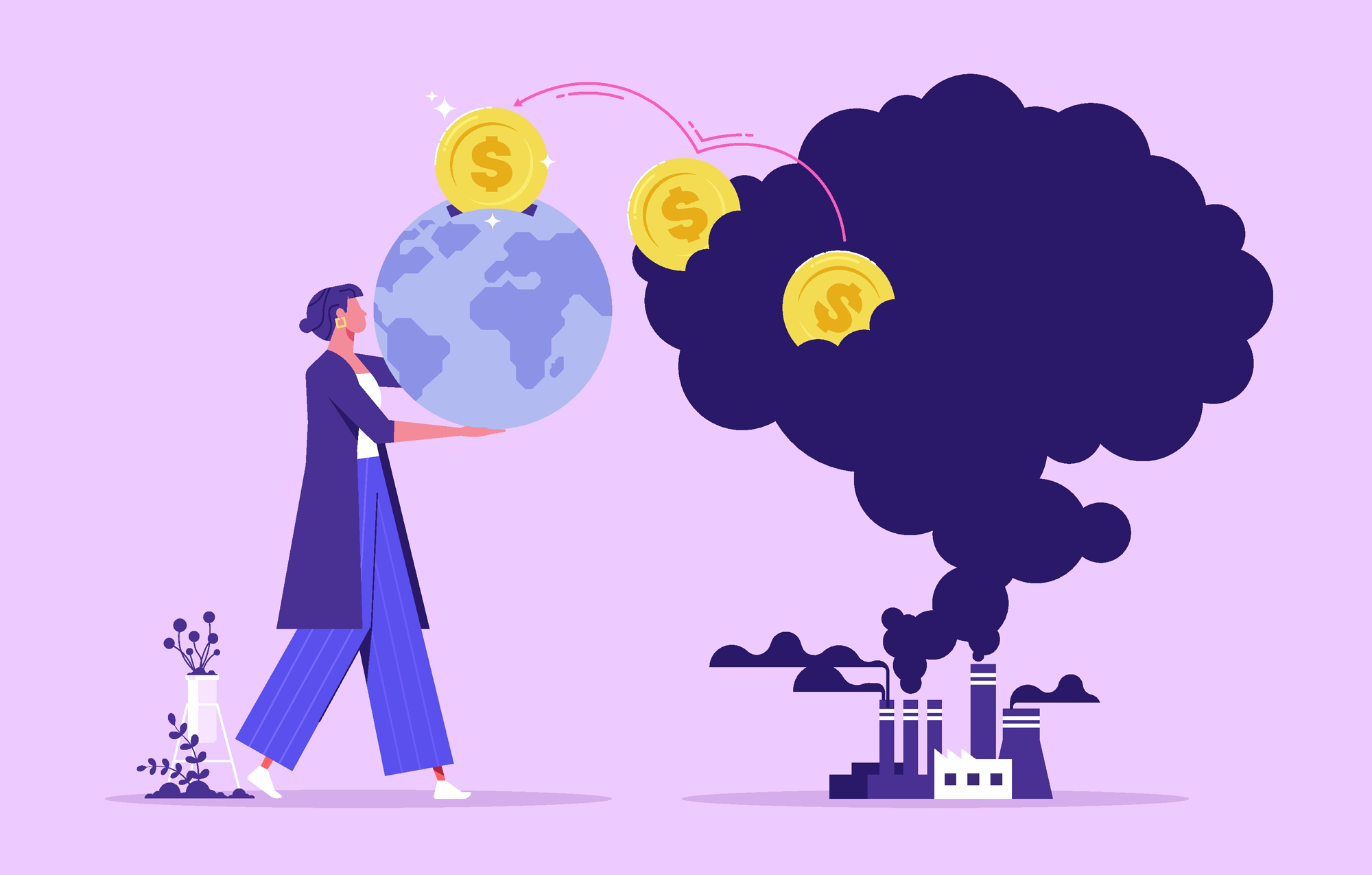
ILLUSTRATION: ISTOCK / TREETY
But the European Union’s Carbon Border Adjustment Mechanism (CBAM), a carbon tariff on products such as steel and cement, will take effect in 2026, holding industry to new standards. In Turkey, government officials are looking to economic development specialists for guidance in their response.
Enter the Abdul Latif Jameel Poverty Action Lab (J-PAL) at MIT and David Atkin, the Barton Weller L. Professor of Economics, working with support from J-PAL’s King Climate Action Initiative (K-CAI). K-CAI collaborates with policymakers and researchers to generate evidence and catalyze the scale-up of solutions that reduce carbon emissions and co-pollutants, build vulnerable communities’ ability to adapt to climate change, and increase access to affordable energy. Since 2020, K-CAI has powered over 80 research studies and 13 scaling projects in 40 countries. The first complete scale-up supported by K-CAI has reached over 15 million people.
“We came into this because of Turkey’s desire to work out how to become more environmentally sustainable, in part because of the perceived future pressures of the CBAM,” says Atkin. The government was concerned that carbon-specific taxes would harm the many small- and medium-sized Turkish firms that export products to the European Union, says PhD student Aaron Berman, a member of the research team. They worried that firms “didn’t have sufficient capacity both in terms of knowledge and financial capital to be able to adapt to the new tax and lower their carbon emissions. This is a common problem in developing countries.”
Turkey was an appealing research site, Berman explains, because government agencies maintain comprehensive industry data “on everything related to firm operations within Turkey, number of employees, volume of sales they’re making, and, importantly for our project, what products they make and who they sell to. It’s a pretty unique feature of the Turkish setting.”
Investing in sustainability
The team provided training on environmental sustainability to industries almost certain to be affected by CBAM. “We’ve also partnered with commercial banks who get funding from the European Bank for Reconstruction and Development. They provide it to companies at lower than usual rates for environmentally sustainable investments,” says Atkin.
Even small businesses that are more focused on profit than on their environmental impact, he observes, are keen to improve efficiency. “The major source of carbon emissions for all of these firms is energy usage, and so if they’re able to make things more efficiently, that might be a double win.”
The research team is evaluating three types of training in which companies are taught how to directly reduce emissions with the use of mitigation technologies, innovate by manufacturing items that use less energy to produce but sell for higher prices, or increase efficiency by reducing energy usage.
Using a randomized control trial—with firms receiving one of these types of training at random—they hope to understand which of the three strategies is most effective at cutting emissions.
Meeting with employers in Turkey, Berman was struck by the wide range of awareness. “Not only were many of the firm owners unaware of the EU regulations, but very few of them had any direct knowledge of carbon emissions at all. That’s additional motivation for us to introduce these trainings and technical solutions.”
Potential to backfire
Economic development is a delicate process, Atkin explains. “One thing we’re particularly worried about is what people often call carbon leakage: where a firm adopts an environmentally beneficial technology which reduces their emissions, but raises their costs.” If that forces the company to raise prices, customers might take their business to competitors with more lax environmental practices.
The reverse scenario is also a danger, he says. “We’ve had a couple of interventions where when these types of environmental practices are adopted, the firm actually ends up polluting more. Why? Because their output goes up. Although that might be a good thing if they are pulling sales from more polluting firms.”
“Something we can scale”
After widespread implementation, Atkin says, “we’ll get a sense of how many of these firms have made investments and the impacts on sales and emissions.” He hopes their strategies, if successful, can be replicated in other countries.
“Other development banks and organizations are supporting green finance around the world, and these kinds of training programs are somewhat portable. The content is certainly something we can scale.”